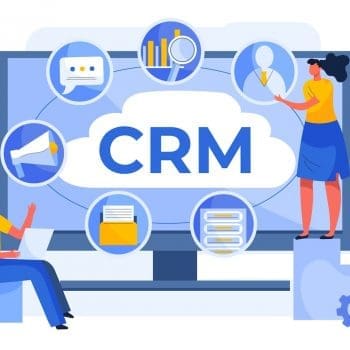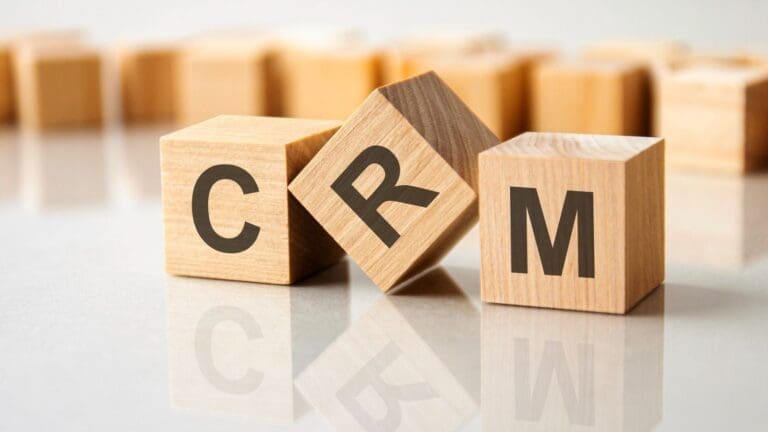
Hotels can boost revenues and stay competitive by collecting, analyzing, and implementing information gathered through data mining. Therefore, implementing CRM strategies in the hotel industry is one of the primary data mining concepts for generating revenues and staying ahead.
It’s no wonder that data is such a big trend. It helps hotel owners make the most of guest reviews, strengthen loyalty programs and even gain further insight into unexpected things that might be impacting their business. According to HotelTech Report, well-executed customer relationship management (CRM) strategies are powerful approaches for the hotel industry. From effective marketing to managing relationships with their clientele, hotels can achieve financial success by enticing guests to schedule stays at their hotels.
A good CRM should be able to have the functionality of managing all customer interactions in one place on top of being highly scalable and flexible. However, knowing your options is only the first step in understanding what it takes to ensure your business runs smoothly. This article will help you learn about CRM and relevant ways to implement successful CRM strategies in the hotel industry.
What is CRM?
The hotel industry spans many businesses, from small inns to five-star international hotels. Each enterprise has one thing in common: the need to maintain strong and reliable customer relationships. The key to succeeding with any business venture is building solid and profitable relationships between your product and its audience, which can be possible only with successful CRM strategies.
As per the reading of CRM simplified, Customer Relationship Management in the hotel industry is a process of managing and tracking interactions between companies and their customers, including messages, interaction history, user engagement, and much more! In other words, CRM strategies offer a bird’s-eye view of a firm’s clients and sales opportunities by analyzing how frequently different employees interact with clients and what products/services are being bought.
Customer Relationship Management tactics allow hoteliers to keep track of clients’ preferences and order histories over time and their specific requirements so that staff can tailor their projects and products more effectively. It helps keep business processes running smoothly, ensuring efficiency for both the client and the hotels.
In December 2017, Gartner released their report with the estimate that Companies spent more than $35.9 billion on Customer Relationship Management solutions from vendors around the world and were pushing CRM spending to the largest enterprise software category. This steep growth in CRM sales illustrates an increasing demand for a solution that hotel businesses can utilize to nurture and maintain lasting relationships with customers in today’s digitally-driven world.
3 crucial ways to create a successful CRM strategy for hotel businesses
#1. Segmentation of target customer base
Keeping tabs on information about your customer base is essential to running a business and offering the best customer experience. Collecting and parsing such information electronically in one central place saves your time and helps you to meld it into crucial insights that can transform your business in significant ways. Airbnb’s target demographic is the ideal example for getting depth about target market segmentation.
Data segmentation of customers’ info is one of the reliable ways to establish a successful CRM strategy in any hotel business. It helps to create customer profiles and improve communication. It involves customer profiling and understanding customers’ behavior and buying patterns to strengthen your outreach marketing tactics and reap better business outcomes.
For example, suppose you have a powerful CRM dashboard and want to contact customers to collect feedback and get reviews, you can integrate a cloud phone system such as ULTATEL to get the detailed review over call from customers at one click from your CRM dashboard. It will help you tackle all conversations and feedback you have on your dashboard and websites. Here are some points you need to focus on:
- Try to capture those facts that help your customers to book rooms.
- Avoid repetitive phrases or slang and add productive FAQs.
- Add a questionnaire form for our existing customers and ask them to fill it in returns for further discounts on room booking.
#2. Application of personalizing features for customers on a website
Personalization is critical in getting attention and receiving the desired action from your audience for hoteliers. Personalization does not only mean tailoring your emails or messaging; it’s about ensuring that what you say is tailored to meet your customers’ needs based on their unique likes, preferences, and interests.
According to Gartner, personalization is one of the critical elements in driving customers’ attention and resulting in desired actions. Even it allows hotel owners to target the person without much effort for what he wants at the moment and the means that lure him. It also makes your customers feel special and entices them to take action.
Through personalization CRM strategy, think about ways you can provide a richer and more engaging experience for your website visitors. For example, suppose you have special offers for people who plan on staying for extended periods. In that case, you could highlight the availability of such requests to catch the attention of potential guests who might not be planning to stay at your hotel that long. It will also help you to build trust and retain your customers.
As a hotelier, you can also offer special deals to longer-term guests with the help of personalized posts. You can also focus on blogging about the long-term benefits of your website to highlight offers or services. It will help you reach well-informed decision-makers looking for a guide in their plans.
#3. Understanding of customer’s personas and customer’s journey
Creating buyer personas as a top CRM strategy offers hoteliers a valuable opportunity to develop their brand’s online presence and improve customer experience. To do this, they can lay out the basic profile traits used to describe each distinctive customer type that best fits the hotel business is about!
On the other hand, understanding the customer’s journey is the potential process consumers go through before deciding to take your services or book any rooms. It enables you to assess who your consumers are and help you to make crucial adjustments in presenting your brand in front of your customers and on social media. As per the reading of Hospitality New Middle East, Persona Strategy can be segregated into three steps:
- Analysis of customer search behavior and online engagement process to increase brand awareness.
- Creation of targeted and personalized marketing campaigns for each reliable persona segment, such as customers who prefer online hotel booking, exclusive discounts, repetitive room checking, etc.
Personal strategy will help hotel owners improve their customer experience, enhance investment returns and optimize branding tactics.
Conclusion
To improve your CRM strategy and retain your prime customers, you must ultimately be able to monitor every action taken by a customer, no matter how insignificant it may seem. The ways mentioned above are keys to discovering what kind of trends are present in your data over time or pinpointing real-time information. In addition, it can help you understand visitors’ behavior at specific times and provide them with optimal CRM experience based on their activities, preferences, and requirements like online onboarding, discount preferences, repetitive room bookings, etc.



















